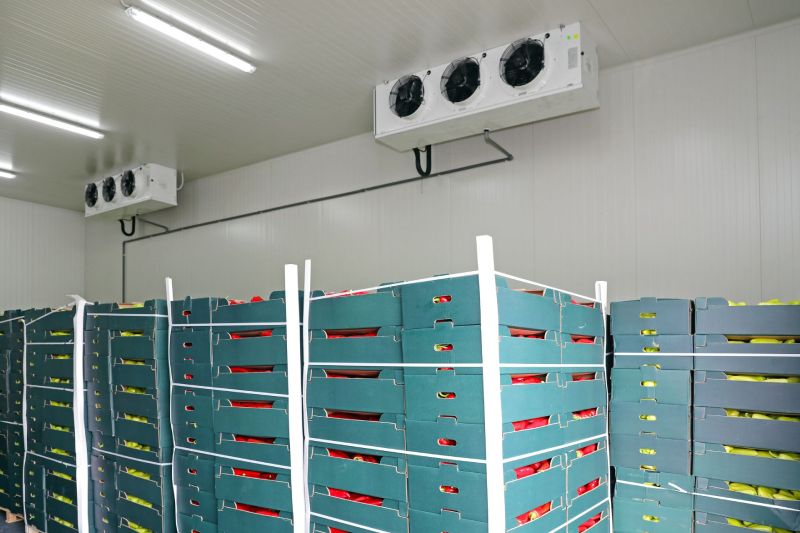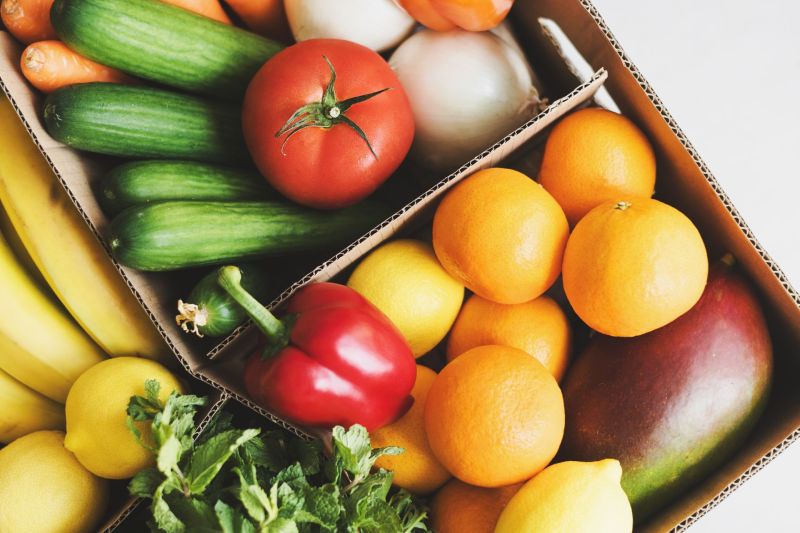Storing Produce Foods Safely: 5 Best Practices & Useful Tips
The way to a successful dining experience for your restaurant guests is paved with safe practices, wise choices and a lot of care. Once you’ve procured all the fresh bulk produce you need, the next big challenge is to store it properly to avoid spoilage, reduce waste and preserve its flavor quality for as long as possible.
Sadly, fruits and vegetables don’t come with an instruction manual on proper storage, so mastering the art of agricultural produce storage takes some knowledge and a lot of practice.
It’s all worth it because it ensures food safety – which means your customers will not run the risk of getting sick after consuming your food. It also helps you save money and minimize waste, which is great news for your budget as well as for the environment.
How do restaurants store farm-produced crops and goods?
Storing wholesale produce foods crops and goods fresh in your restaurant’s storage room can be challenging. Here are a few useful tips for storing wholesale fruits and vegetables properly:
- First in, first out
One of the best produce storage tips is to use older products first. By doing so, you avoid wasting foods as they reach their expiration date or simply go bad. New stocks should always be placed behind existing ones, so everybody keeps track of what needs to be used first.
- Store produce uncut and unwashed until use
Pre-cutting or washing your fruits and vegetables might sound like a time-saving trick, but it’s not. Washing and/or cutting your produce ahead of time significantly reduces its shelf life and leaves it vulnerable to microorganisms, which affect its flavor and make it go bad faster.
- Find dark, cool places for storage
Your wholesale produce storeroom should be a dry, cool place. Stored fruits and vegetables thrive at reduced temperatures, so keeping them out of direct sunlight in a temperature-controlled environment is key.
- Separate your produce
Ethylene, a gas produced by fruits and vegetables as they ripen, is a huge factor to consider when storing your bulk produce. Ethylene-producing produce (such as apples, avocados, peaches and more) should be separated from ethylene-sensitive produce (broccoli, cabbage, leafy greens and others). As a rule of thumb, store fruits separately from vegetables. Here’s a comprehensive guide on ethylene control in the cold chain.

How to best store vegetables for lasting freshness?
How to Store Potatoes – Keep potatoes away from the fridge and instead store them in a cool, dark place. Moisture makes potatoes spoil faster, so keep them in a dry environment, preferably in a basket. When stored properly, fresh potatoes last about 2-3 months.
How to Store Tomatoes – Tomatoes thrive when they’re not stacked against each other and kept away from sunlight. Don’t store them in the fridge until they’re soft. Their storage life is short, lasting anywhere between 3 to 5 days.
How to Store Leafy greens – Rinsing your leafy greens and drying them before storing is recommended, provided you keep them in a sealed container (preferably a plastic bag) in the fridge. Doing this will keep them fresh for about a week.
How to Store Cucumbers – To protect cucumbers against ethylene gas, store them in a paper towel inside a plastic bag, leaving the top open. This will make them stay fresh for about 10 to 14 days.
Squash and other root veggies – Root vegetables like garlic, onions, yams and squash can be stored safely in a dark place in your storage room.
How to best store fruits for lasting freshness?
If you’re wondering what is the best time and how to keep wholesale fruits fresh for your restaurant : It’s always best to buy in season from Fadaro Foods. Also, buy in time, to avoid spoiling. Fadaro Foods brings top quality and best wholesale foods for your restaurant and business in NYC.
But storing wholesale fruits can prove to be challenging for your restaurant business. Here is our preferred ways to store fruits for maximum long-lasting freshness.
Storing Apples – Whatever you do, try to keep apples away from other produce foods (particularly citrus and bananas), as they are some of the biggest ethylene-producing fruits. They can be stored in a dark, cool place but they last longer (up to 8 weeks) if they’re kept in the fridge.
How to keep Berries – Berries thrive under low temperatures, so it’s best if you keep them in your refrigeration unit until use. Don’t wash them or remove their stems ahead of time.
How to store Avocados – Avocados are notoriously sensitive to storing conditions. Before they ripen, they should be kept at room temperature away from direct sunlight. Once they’re ripe, they can be transferred to the fridge, where they can last for about 3 days.
How can you store citrus – Citrus fruits can be stored in the fridge for maximum freshness. The shelf life for lemons is usually around 3-6 weeks, for limes up to one month and for oranges only 10 days. Another way is to put your lemons in a jar filled with water. This will ensure maximum freshness for your organic lemons or other local purchased wholesale grapefruits, wholesale mandarins, wholesale local bought lime. Don’t forget the lime!
Grapes – Thinking about where should you keep your wholesale bulk grapes? Even if they’re Red, Green or tasty organic Thomcord or Concord wholesale grapes. Storing organic or non-organic grapes in your refrigeration unit can help them last for up to a week, provided you don’t wash them beforehand and they’re well ventilated.

For more information on how to store every type of produce, check out this fruit and vegetable storage chart.
Proper storage of fruits and vegetables is key to your restaurant’s success but sourcing the finest quality produce from a reliable wholesaler near you is just as important. Fadaro Wholesale Foods offers a wide range of produce, specialty items, and dairy at wholesale prices and peak freshness.
And if you’re running low on storage space, don’t worry! We can customize your order, break cases and send you only the quantities you need. This way you’re not only saving money, but also actively reducing waste in your restaurant kitchen.

Fadaros’ editorial team is dedicated to creating high-quality, insightful content that helps food businesses navigate the challenges of the wholesale industry. We aim to empower you with practical advice, expert insights, and resources tailored to your needs. By aligning with our brand’s mission of helping you grow and build a successful future, we aim to be a trusted partner every step of the way, ensuring your success remains our top priority.






